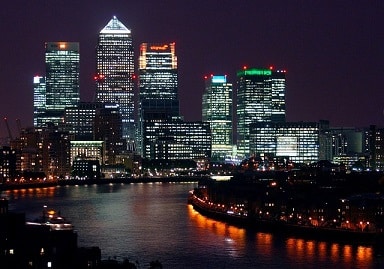Experts have reacted to the Bank of England’s decision to raise interest rates for the 14th time in a row, lifting its official rate to 5.25 per cent.
The quarter per cent rise was smaller than some economists predicted and followed the release of lower-than-anticipated inflation data in June.
Governor Andrew Bailey recognised that inflation hits thoseb least able to afford it hardest and this was a step to ensuring “that it falls all the way back to the 2 per cent target”.
As for the here and now, the financial sector was quick to comment on the implications.
Adam Zoucha, MD EMEA of FloQast, said the decision “puts us on a similar footing to the height of the financial crisis. The high levels of borrowing, mean the cost of investment is tougher to secure and pay back. This can stilt hiring plans, diversification efforts and ultimately growth”.

Reid: more feeling the squeeze
He added: “Fiscal tightening makes it more tempting to hold back on crucial transformation projects. Organisations that might previously have had projects on their roadmap, aligned with upcoming investment, might pause for thought. The crucial thing here, is to prioritise the projects that can free up resources, to drive the business forward.
Paresh Raja, CEO of Market Financial Solutions, said the rise was not in itself a significant issue; adding that this was the norm before 2008. But the fact the jump from a meagre 0.1% in December 2001 has come in a relatively short space of time has offered borrowers, investors and businesses little time to adapt.
While the 0.25 per cent increase is lower than might have been expected, the continuing upward trajectory seriously undermines the growth ambitions of businesses up and down the UK
“Positively, looking ahead, economists are suggesting the base rate may not rise as high or as quickly as once thought, and the rates available on products are starting to reflect that. Today’s hike shows that – perhaps counter-intuitively for borrowers, even though the base rate rose, there is some good news in that the jump was smaller than previously predicted, allowing lenders to reassess their rates accordingly.”
George Lagarias, Chief Economist at Mazars said: “The Bank heeded the calls for restraint and hiked only once. In essence, the central bank is acknowledging that slow growth is a concern, and that inflation is finally showing signs of retreat. We now have to see whether its cautious strategy will pay off, or whether a more aggressive stance will be needed in months to come.”
But the view of Jatin Ondhia, CEO of Shojin, was that it was more of the same, although he felt there was a sense that we might be nearing the top of “the interest rates mountain”. He said: “Inflation is finally falling, with the next set of data on 16 August expected to show another notable decline.
“In turn, pressure will ease on the BoE, meaning it can slow or pause on its hiking of the base rate. All of this would allow for much-needed stability and hopefully a bit of confidence to return.”
The Committee was facing a perfect storm, with intense pressure from opposing directions. On the one hand, July’s slight drop in inflation, the threat of recession and concerns for households and businesses; but on the other, the imperative to finally get inflation down to 2 per cent
“Still, we cannot underestimate the implications of elevated borrowing costs across the property market. Homeowners are facing higher mortgage rates than at any point since the financial crisis, while developers are also finding it harder to access finance. Consumers, investors and businesses will all be hoping that we are nearing the end of this economic turbulence.”
Ed Reid of TAB (UK) said: “The impact of the rate rise will be felt hardest by those with debt repayments to make, irrespective of whether that debt was taken on to survive, or to fund growth plans. Well-run firms will have factored in contingency plans for higher interest rates, but even those plans may not have accounted for the relentless rise in rates that we’ve seen in the last two years.

Singh: more resilience needed
“As a result, more and more businesses will now be feeling the squeeze on their cash in the coming months, which clearly has the potential to negatively impact further investment.”
There was an air of Groundhog Day, according to Michael McGowan, Managing Director of Foreign Exchange, Bibby Financial Services.
“While the 0.25 per cent increase is lower than might have been expected, the continuing upward trajectory seriously undermines the growth ambitions of businesses up and down the UK,” he said. “For those already struggling with margin erosion and cashflow challenges, ever-higher interest rates signal more pain to come, and the likelihood of yet more insolvencies over the medium term.”
Arun Singh, Global Chief Economist at Dun and Bradstreet, said the move is an indication that keeping inflation under control continues to be a top priority. But he added: “The further increase in interest rates is likely to spark concerns for businesses across the UK who have already experienced a challenging few years.
“Our recent research shows that businesses are still dealing with weak consumer demand. This economic uncertainty calls for more resilience, and it’s important for businesses to have a detailed view of their ecosystem to help navigate the current environment. Having access to data that provides more visibility of supply chains, financial pipeline and customer needs is critical for businesses to predict, prepare and secure their future success.”
And Joseph Calnan, Corporate FX Dealing Manager, at Moneycorp, said the decision was “one of the BoE’s hardest yet. The Committee was facing a perfect storm, with intense pressure from opposing directions. On the one hand, July’s slight drop in inflation, the threat of recession and concerns for households and businesses; but on the other, the imperative to finally get inflation down to 2 per cent.
“While we’re likely now looking at a lower terminal rate than forecasted a few weeks ago, we can’t yet say whether a shallow hike was too dovish too soon. August’s CPI data will give us an early sense, but the reality is the policy decisions of recent months will take far longer to make themselves felt.
“Even if inflation continues to drop, every decision the Bank makes for the next two years will be pivotal in determining how quickly we get our economy back on track.”
Related
Why interest rates can’t go much higher
Why higher rates are a reason to be cheerful

